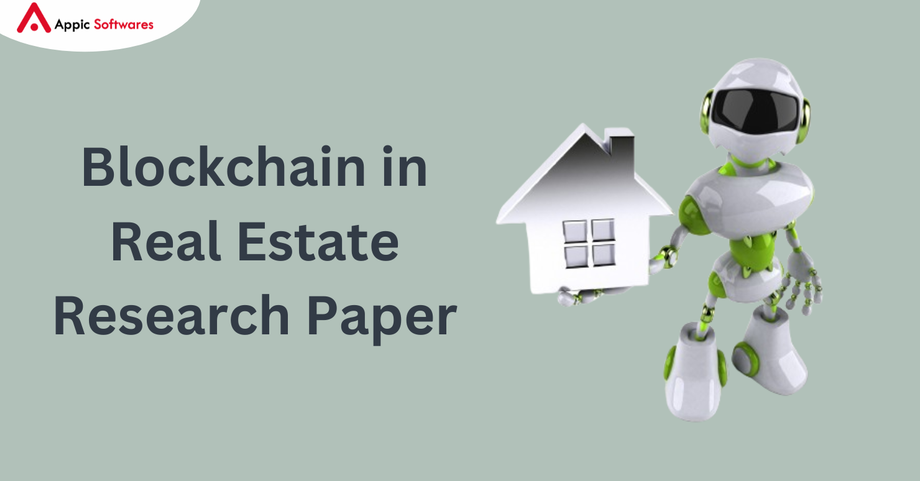
The real estate sector, long known for its inertia and reliance on paper trails, is at a crossroads. Blockchain technology, the secure and distributed ledger system powering cryptocurrencies, presents a compelling opportunity to revolutionize the industry. This blog dives deep into the research surrounding blockchain adoption in real estate, exploring its potential benefits, existing challenges, and future implications.
Research Spotlight: Blockchain's Transformative Potential
Academic studies and industry reports consistently highlight the transformative potential of blockchain in real estate. Here's a closer look at key areas of impact, supported by research findings:
1. Enhanced Transparency and Security:
- A 2020 study by the University of Hong Kong found that blockchain's immutability and transparency can significantly reduce fraud risks associated with property ownership records.
- Research by Deloitte (2018) emphasizes that blockchain can create a single source of truth for property data, eliminating discrepancies and fostering trust between stakeholders
2. Streamlined Processes and Improved Efficiency:
- A 2019 study published in the Journal of Open Innovation: Technology, Market, and Complexity highlights the use of smart contracts – self-executing contracts on the blockchain – to automate manual tasks. This streamlines workflows, reduces human error, and expedites transactions.
- Research by McKinsey & Company (2017) suggests that blockchain can potentially reduce transaction processing times by up to 80%, leading to significant cost savings
3. Fractional Ownership and Democratization of Investment:
- A 2021 research paper by the University of New South Wales explores the potential of blockchain-based tokenization to divide properties into smaller, tradable units. This democratizes access to real estate investment, opening doors for a wider pool of investors.
- Research by the Cambridge Centre for Alternative Finance (2019) emphasizes that tokenization can increase liquidity in the real estate market, allowing investors to enter and exit positions more easily .
4. Improved Mortgage Processes and Reduced Costs:
- A 2020 study by the Singapore University of Technology and Design highlights the potential of blockchain to streamline mortgage approvals by facilitating secure and efficient verification of borrower data, potentially leading to faster loan processing.
- Research by the Mortgage Bankers Association (2018) suggests that blockchain can potentially reduce loan origination costs by up to 10% through automation and improved data sharing.
Research-Identified Challenges and Considerations
While the research overwhelmingly supports blockchain's potential to transform real estate transactions, significant challenges remain:
- Regulatory Uncertainty: The regulatory landscape surrounding blockchain and cryptocurrency is still evolving. Governments worldwide are grappling with how to create frameworks that encourage innovation while mitigating potential risks associated with digital assets. This ambiguity creates uncertainty for businesses looking to integrate blockchain into their operations.
- Scalability Concerns: Existing blockchain platforms may struggle to handle the high volume of transactions associated with a global real estate market. Scalability solutions are constantly being developed, but further research and development are needed to ensure efficient and secure processing of large-scale real estate transactions.
- Technical Expertise Gap: Integrating blockchain technology into existing real estate processes requires a significant shift in mindset and technical expertise. Industry stakeholders need to invest in education and training programs to equip themselves with the necessary skills to leverage blockchain effectively.
The Road Ahead: Collaborative Innovation and a Blockchain-Enabled Future
The real estate industry is slowly but surely embracing the potential of blockchain. Early adopters are exploring pilot projects and developing innovative applications across various aspects of property transactions and management. However, collaboration is key to overcoming challenges and achieving widespread adoption.
- Industry-Wide Collaboration: A concerted effort from industry leaders like real estate developers, agents, financial institutions, and technology companies is needed to foster innovation and drive blockchain adoption.
- Regulatory Clarity: Governments need to establish clear and comprehensive regulations for blockchain technology in real estate, providing a framework for secure and responsible development.
Continuous Research and Development: Ongoing research is crucial to address scalability concerns, enhance security protocols, and develop new blockchain-based solutions specifically tailored to the needs of the real estate sector.
Conclusion
Moreover, if you are looking for a Real Estate app development company then you should checkout Appic Softwares, a leading Real Estate app development company.
